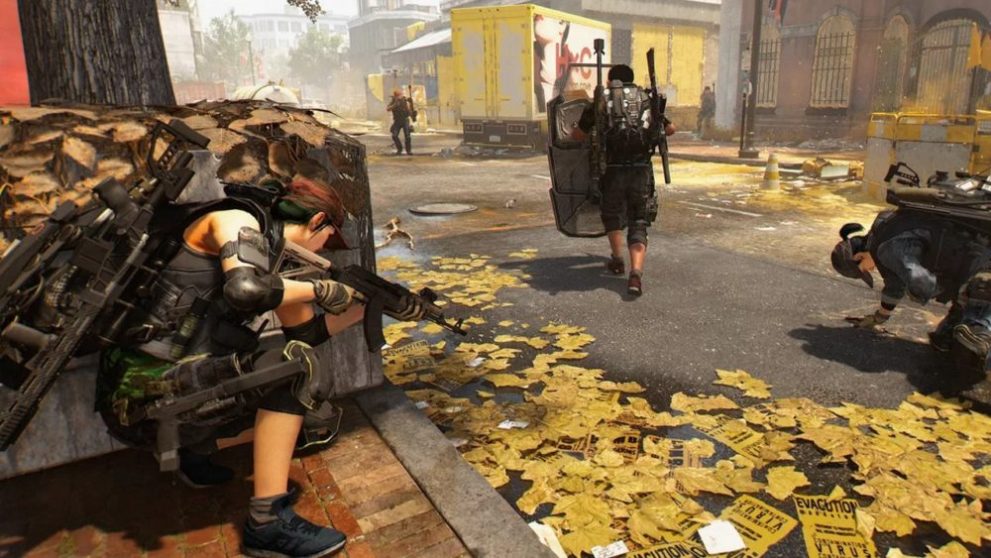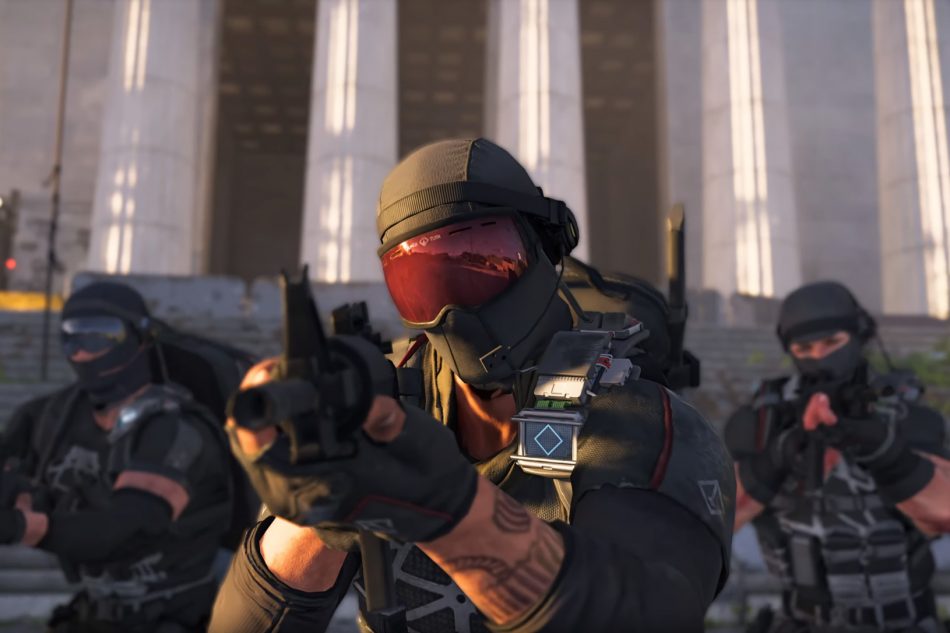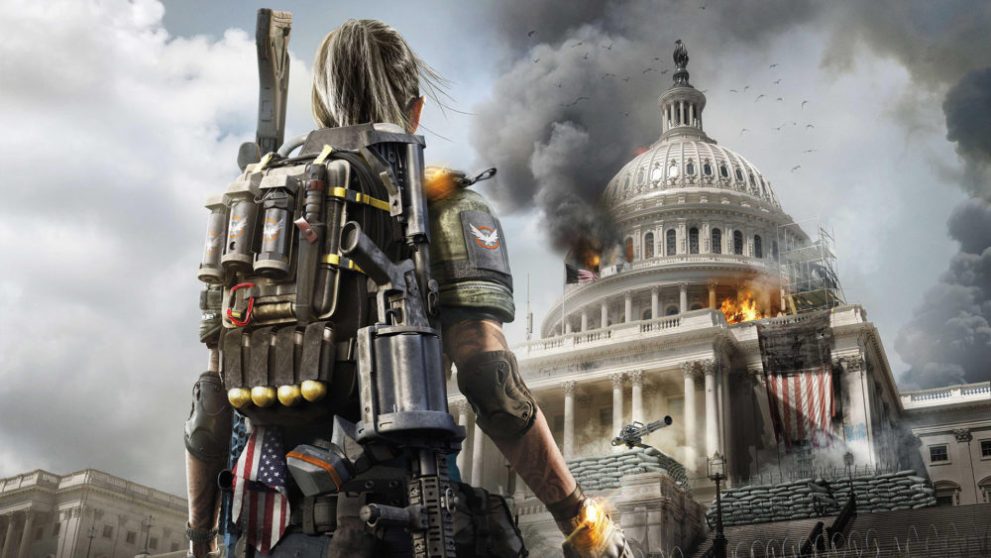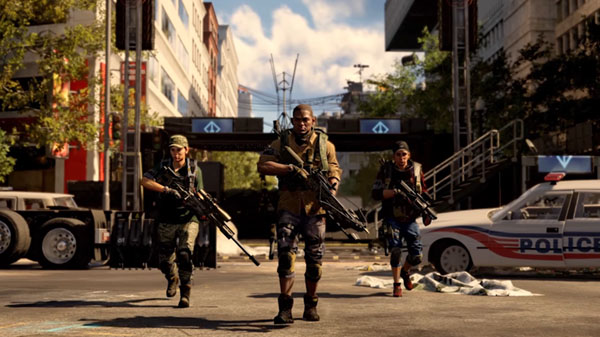Positive Changes in The Division 2
Works: A More Fleshed Out Open World
The most obvious improvement in The Division 2 is the open world of Washington DC itself. While it’s not quite as visually pleasing as Manhattan, The Division 2’s open world is just filled with so many things to do.
Control Points are the biggest addition here, as they add a new layer of complexity to the core gameplay.
You’ll start out by having to liberate them from enemy control, which rewards you with a ton of loot, then you’ll have to maintain them with food and supplies for an occasional loot replenishment.
Other public activities include executions, propaganda broadcasts, and civilian rescues, and every little thing you do in the open world feels extremely rewarding.
Even if you aren’t actively looking for things to do, just exploring the open world can reward you with lore items to pick up, collectibles, SHD Tech caches, and other crates with resources to scavenge.
The Division 2’s open world feels way more alive than Manhattan ever did, making it a joy to explore.
Positive Changes in The Division 2
Works: Invaded Missions
I could go on and on about The Division 2‘s end game content, but instead I’ll focus on the major new thing here: invaded missions.
After beating the story and reaching the level cap, you can replay missions and Strongholds, but with a twist. A new faction called the Black Tusk can show up during missions you’ve completed before, adding a new wrinkle into things.
At first glance, the Black Tusk enemies don’t appear that much different from the Hyenas, Outcasts, and True Sons. However, they come packing with some seriously powerful gadgets and gear that will force you to rethink your combat strategy.
The Black Tusk are equipped with insanely cool robotics that truly make The Division 2 feel more like a dystopian sci-fi game, rather than just another modern cover-based shooter.
You’ll eventually get a hang of how to deal with the Black Tusk, but it’s hard to forget their killer first impression in the game.
Positive Changes in The Division 2
Works: Better Dark Zones
The Dark Zone was the major selling point of the original game, and it continues to shine in The Division 2. There are only three major Dark Zone areas, but they feel a lot more distinct from each other, as compared to the same-ish streets we saw in the first game.
What’s interesting, though, is the fact that the normalization mechanic has been introduced in The Division 2.
The original Dark Zone could feel intimidating for new players, as you always ran the risk of running into higher leveled players who might have better gear and perks to give them an advantage in the fight.
In the sequel, there are short tutorial missions to give you a sense of the different layouts, and the normalization mechanic also balances out all your gear stats and ensures that every player is on a somewhat level playing field.
If you’re looking for a real challenge, though, there are Occupied Dark Zones on rotation as well, which completely remove normalization. This is where the real battle begins, and these areas are reserved only for the players who have spent a lot of time optimizing their gear.
Along with all of that good stuff, the introduction of the Thieves’ Den is also a nice reward for players who like taking risks and getting their rogue status up.
One Thing That Still Needs Fixing
Problem: Missions Still Feel the Same
It was a problem in the first game, and it continues to be a problem in The Division 2. The one massive drawback to this game is the fact that every mission kind of feels the same.
You’ll enter a room with tons of waist-high objects to hide behind, shoot a bunch of people, then proceed. Sometimes there are objects you need to interact with, but you’re mostly just going through the motions with each mission.
There’s also the problem of the bosses and elite enemies all feeling kind of samey as well. For the most part, they’re all armored dudes with machine guns. And sometimes they have flamethrowers.
The Division 2’s bosses are significantly less bullet sponge-y than in the first game, but they’ll still take a ton of hits before they go down.
This can be frustrating, mostly because taking them down doesn’t require that much brain work, and is usually a case of just shooting them till they fall. Which, in turn, still makes them feel a little bullet sponge-y.
It certainly doesn’t help that these bosses aren’t very memorable either. I’m not even sure the last boss had a name.




